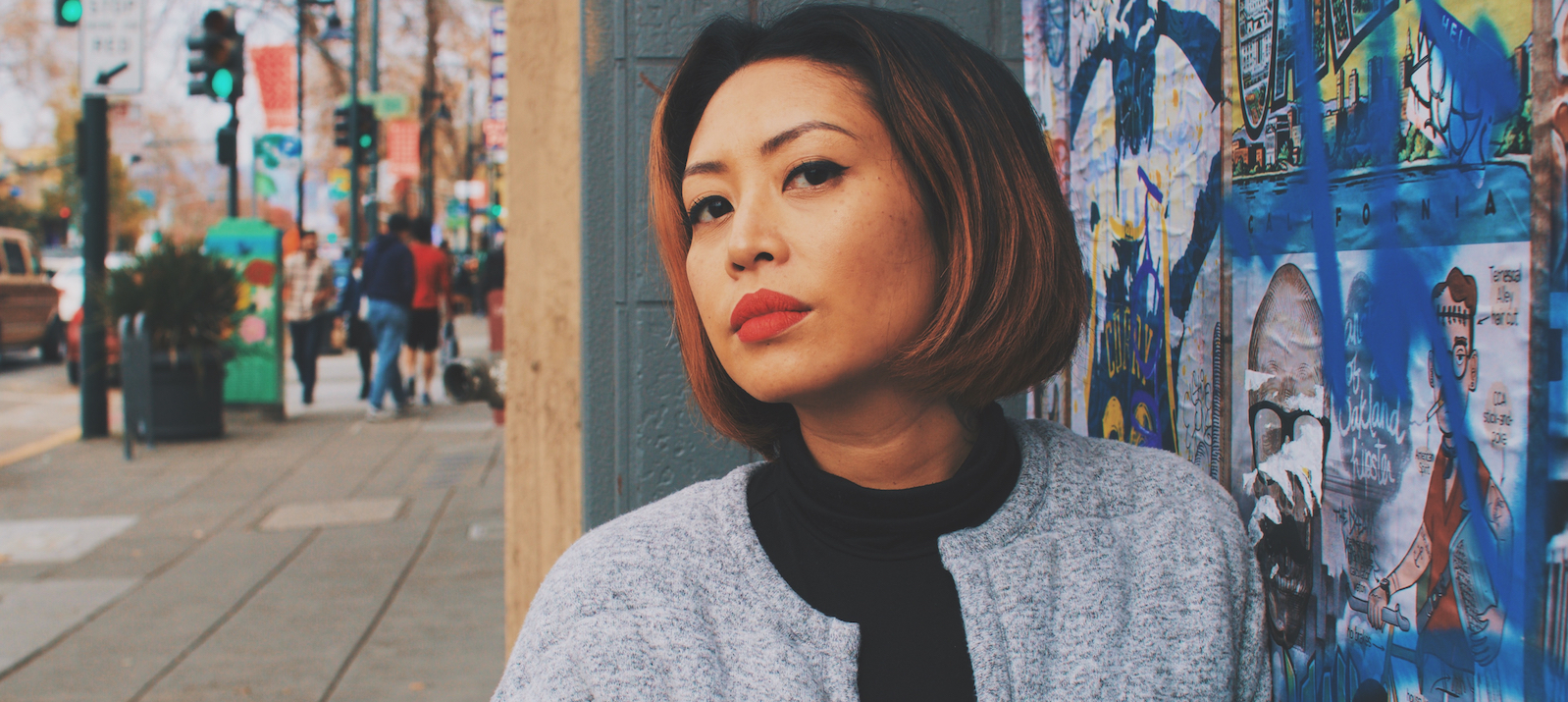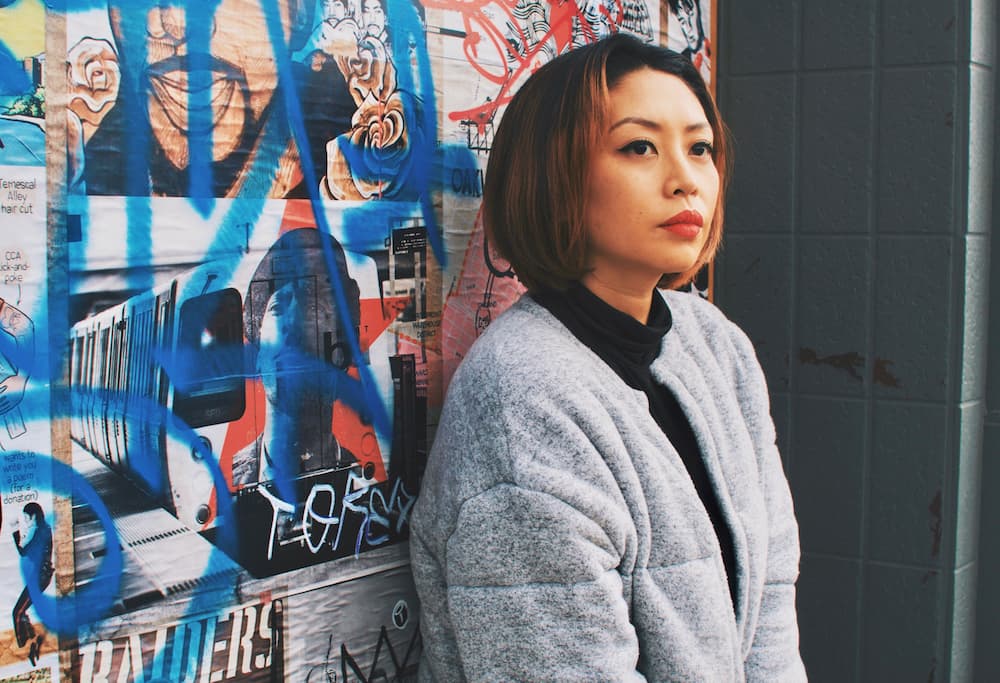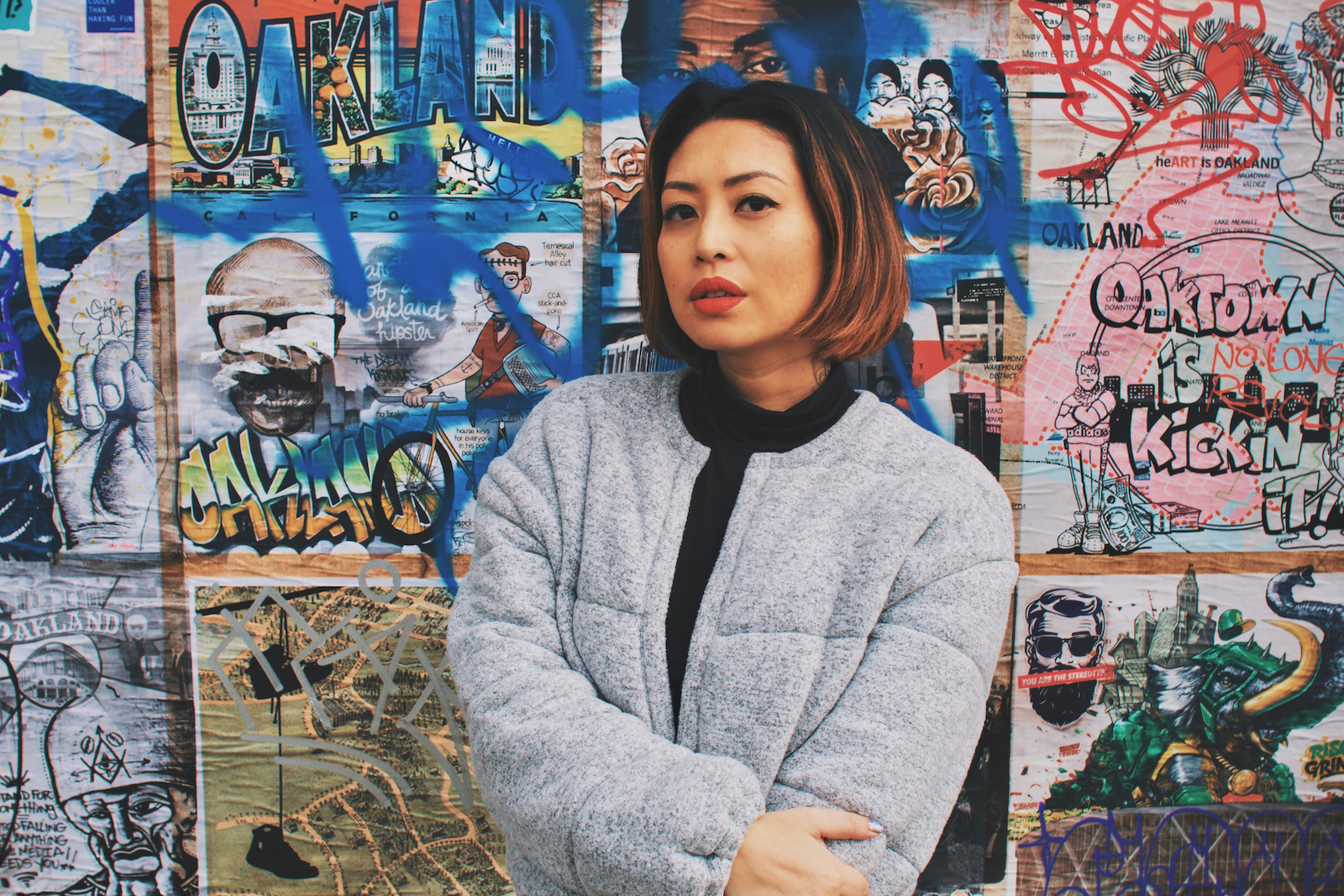
Why Music Powerhouse Rocky Rivera Misses the Old San Francisco
January 22, 2018
Rana Good is the founder of Naïra NYC. A writer for publications such as Forbes, Travel + Leisure, Coveteur, Mens Journal and others, she created her own platform celebrating women of color.
Rocky Rivera is a true wordsmith — an MC with razor-sharp lyrics, who got her start in the music business as a journalist penning in-depth, eye-opening features. A Bay area native with Filipino roots, she raps about subjects like feminism, politics, and gentrification, keenly assessing and re-imagining the world’s power dynamics. This year marks Rivera’s tenth year in music. We wanted to find out what she’s learned throughout the last decade and what exciting projects she has in the works.
How was 2017 for you? What were some of your high and low points?
Rocky Rivera: This year I did a one-off song with a producer which was licensed by Far East Movement, and it ended up in a lip gloss commercial overseas. It was also on Queen of the South on TBS and SWAT on CBS. It was the first time I really saw residuals for a song, so I was like “oh okay, there is money out there.” There’s so much work that goes into albums and then people’s attention spans are so short. Sometimes being a rapper and a woman, there are not that many revenue streams and there isn’t that much support.
My music was submitted for a movie about the Bay Area at Sundance which will be showing this month. So first I had a commercial, then two shows, then a movie – it’s really exciting to know that once you get the ball rolling things can unfold for you in a different way as an artist. I love any way that women can monetize their art.
I haven’t dropped an album since 2015. That year I did an EP, went on tour and have been working on my upcoming album ever since.

How have you perceived the last 12 months on a political level?
I’ve been trying to lay low and dodge what’s happening. There’s too much pain. How many marginalized communities can you attack in one year? For someone who’s been about politics, the government, Obama — I’ve been trying to tell you! I’m glad you guys are all newly woke now. The writing process has been good, but I don’t want to be depressed all the time. The anger is real but I try to be a voice of reason.
As a journalist, I’m really happy that I’ve learned to be objective and to respect the press. I’ve never seen an attack on the press and it’s scary. You’re going after the checks and balances of this country, like a dictatorship.
You mentioned that you’re a journalist. Are there elements of your previous profession that you utilize as an MC?
I think the most important thing that I’ve learned is that music changes so quickly. You can’t be stuck in a particular style or shun the new generation. When I was younger I was shunned, people were like “we’re not going to play that hyphy music, this is a 25 and over party.” As a young journalist, I didn’t get any guidance from anyone. I reached out to everyone — Miss Info, Danyel Smith — everyone. I’m never going to be one of those artists that doesn’t like the younger generation, saying stuff like “I hate music today, this mumble rap.” It works better when you support each other, especially now that there is all this money pouring into San Francisco and changing the city.
How is that? How has San Francisco changed?
Luckily I got to Oakland before everyone else moved here. I see the changes happening in Oakland and they are the same as in San Francisco. I’m a writer who really champions hometown heroes, however there are no more hood rappers anymore — no more rappers in Fillmore or Hunter’s Point. It’s two percent African American in San Francisco now which is way down from what it was before. There used to be black neighborhoods; Hunter’s Point had the largest percentage of black-owned homes. Now a lot of people move to Antioch and when the people go, the culture goes, the music goes and it’s just a generic city. We’re the living historians of what it was like back then. I’ve talked about gentrification since I started rapping.
In one of your lyrics you say “I’m glad I grew up when I did”, what do you mean by that? What do you think are some of the challenges of growing up today?
As a kid you want to be independent and grow up fast. I’m lucky I grew up when you could go outside and you didn’t need to be on the computer all day. San Francisco was very diverse, it was working class and there was a lot of art. I was 14 when Tupac was shot. Looking back, it feels like I was part of history. Music is a disposable art and we need to make sure we support each other. When I say I am happy I grew up when I did, I am happy I have those values; it’s not about the followers or the fame but how many people can you impact to continue the art that’s from here.
How does being Filipina manifest itself in your work?
I try to use my history, which is very militant, to be an alternative to what people expect women to rap about. Seeing how badass women were there and how they organized themselves is extremely inspiring to me. I am so in awe of the Pinais that are organizing in the Philippines, women can change the narrative of history.
How has your look and style evolved over the years?
You can tell what era of album I’m in based on my hairstyle. My first album was a pixie, the mixtape was the blonde pixie, the beatrock tour was the shaved undercut. I’ve always changed my look up – it’s mostly out of necessity because my hair is wavy so it looks different every day. In Filipino culture the cute girls have really straight hair down to their ass. I knew I was never going to look like that so I had to figure out my own style. I experimented with my natural hair and also with beauty standards.

How do you achieve work/life balance?
I don’t think it’s possible to be honest. We work so that we can do what we love. If you have a day job you need to kind of love it, for it to not kill your spirit. Women are expected to balance things, rarely is a man asked “how do you juggle being a father of three?” Usually his wife is taking care of everything. If everyone had a wife at home, including me, we would get everything done. I’m lucky that my partner is a progressive man that cleans and cooks, and takes care of my son. When I’m not working, he’s working and vice versa. That’s the balance women need, a partner that can hold them down. My partner is an artist as well and I’ve had to have the 9 to 5 while he’s on tour for three months. You have to compromise, it’s really just having someone willing to ebb and flow with you.
What are your plans for 2018?
I secured a grant with Women’s Audio Mission, it’s a non-profit that teaches girls and women the art of audio-engineering, recording, music mastering, and more. We got 80 hours of studio time and a stipend. I’m recording for my upcoming album and I’m really in the zone right now. I’m also thinking about my ten-year anniversary as a writer who has become an artist. I’m coming out with a book that’s a companion to my music. There’s teachable material, lyrics and essays. I’m stretching my legs ten years later and also trying to not let social media affect me and my music. You can lose a lot of productivity when you pay attention to what everyone else is doing. I am going to lean on my experience in the game and share that with the younger generation in the hopes that more women and women of color become artists and have them make music that’s really going to pop. It will always be women of color that lead that conversation.
Listen to Rocky Rivera’s music here
Images and video by Hawa Rahimi